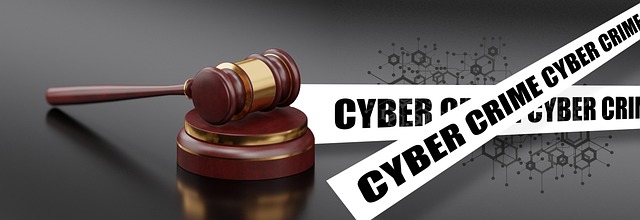Antitrust Litigation Strategies for Tech Companies are essential to navigate complex regulations and protect interests in a competitive market. With antitrust lawsuits focusing on monopolization, data sharing, and innovation stifling, tech firms need robust defenses to balance competition and compliance, ensuring fairness while fostering growth and maintaining reputations. Early case assessments, gathering evidence, and leveraging white-collar defense expertise are key to successful navigation of these legal landscapes.
The RF Securities industry is undergoing a regulatory evolution, particularly with antitrust laws exerting significant influence on tech companies’ operations. This article explores key aspects of this evolving landscape, focusing on understanding the regulatory frameworks governing RF securities. We delve into the impact of antitrust laws on tech giants and analyze current litigation trends in the sector. Moreover, we provide valuable insights into effective defense strategies for tech firms facing antitrust suits, equipping them with essential tools to navigate this complex legal arena. Discover practical approaches to safeguard your business against potential challenges through robust antitrust litigation strategies tailored for tech companies.
- Understanding RF Securities Industry Regulation Frameworks
- Antitrust Laws: Impact on Tech Companies' Operations
- Common Antitrust Litigation Trends in Tech Sector
- Effective Defense Strategies for Tech Firms in Suits
Understanding RF Securities Industry Regulation Frameworks
The RF Securities Industry Regulation frameworks play a critical role in shaping the dynamics of financial markets, particularly with the rise of technology companies and their intricate business models. These regulations are designed to ensure fairness, transparency, and protection for investors while fostering innovation. In the digital age, where tech giants dominate the financial landscape, understanding these rules is paramount. Antitrust litigation strategies for tech companies often find themselves at the intersection of these regulations, especially when navigating complex issues related to data privacy, algorithmic trading, and market manipulation.
For his clients, navigating this regulatory terrain requires a keen awareness of legal nuances. Lawyers and advisors must employ strategic thinking to develop winning challenging defense verdicts in jury trials. By mastering these frameworks, they can guide tech businesses through the intricate web of rules, ensuring compliance and fostering a competitive yet ethical business environment. This is especially crucial given the high-stakes nature of antitrust cases, where the outcome can significantly impact a company’s future trajectory.
Antitrust Laws: Impact on Tech Companies' Operations
The RF Securities Industry Regulation landscape is particularly complex for technology companies, who often find themselves at the intersection of antitrust laws and innovative business models. Antitrust litigation strategies for tech giants must navigate a delicate balance between fostering competition and ensuring regulatory compliance. High-stakes cases involving these companies have garnered significant attention across the country, underscoring the importance of adhering to fair market practices.
Tech firms, with their vast data and network effects, face unique challenges in avoiding indictment for anticompetitive behaviors. Effective antitrust strategies involve meticulous due diligence, transparent communication, and proactive compliance measures. By embracing regulatory clarity and fostering a culture of ethical business conduct, tech companies can mitigate risks associated with antitrust litigation, thereby ensuring sustainable growth and maintaining their competitive edge in an ever-evolving market.
Common Antitrust Litigation Trends in Tech Sector
The tech sector has witnessed a surge in antitrust litigation in recent years, with regulators and consumers increasingly scrutinizing large technology companies for potential anti-competitive practices. Common trends include allegations of market monopolization, data sharing abuses, and the stifling of innovation through exclusive deals or vertical integration. These cases often pit tech giants against smaller startups and competitive businesses, highlighting the industry’s dynamic landscape.
Tech companies face unique challenges when navigating antitrust litigation strategies. They must demonstrate their commitment to fair competition while ensuring they protect their respective business models and innovations. A winning challenging defense verdict can set a precedent for future cases and shape the regulatory environment. Moreover, successful navigation of these legal complexities can foster stronger relationships with philanthropic and political communities, enhancing the company’s reputation and public image.
Effective Defense Strategies for Tech Firms in Suits
Tech firms facing antitrust litigation require robust strategies to navigate complex legal landscapes and protect their interests. A comprehensive approach involves understanding the nuances of competition laws and developing a strong defensive posture from the outset. By employing proactive measures, companies can aim for a complete dismissal of all charges, demonstrating that their business practices are lawful and competitive.
One key strategy is to engage in early case assessments, gathering evidence and documents that illustrate market dynamics and legitimate business decisions. This process enables tech firms to anticipate potential allegations, strengthen their defenses, and present a compelling narrative throughout all stages of the investigative and enforcement process. Additionally, leveraging expertise in white-collar defense can provide valuable insights into mitigating risks, negotiating with regulators, and crafting effective responses to ensure compliance while safeguarding company reputation.
The RF Securities Industry Regulation landscape is complex, with antitrust laws significantly impacting tech companies’ operations globally. Understanding these frameworks and effective defense strategies are crucial for navigating the current and evolving legal trends in antitrust litigation within the tech sector. By staying informed and adopting proactive measures, tech firms can mitigate risks and ensure their long-term success in this dynamic environment. Implementing robust internal controls, fostering transparency, and promoting fair competition are key steps towards building resilient defenses against potential antitrust suits, thereby shaping a sustainable future for innovation.






